Last updated on 14 January 2020
Research your topic and for the keywords before you write.
That’s what I said in the last post.
Read it here: 6 Content writing Tips to Write your First Content
But…..
As a beginner, you won’t know how to do SEO keyword research and choose the right keywords. Plus, you’ll find a ton of methods and keyword research tools, each trying to grab your attention.
Result? Confusion, confusion, and ONLY confusion!

That’s why I have created this ultimate guide to SEO keyword research. It’s tested and won’t make you look here and there for the right keyword research tips.
So if you want higher search engine rankings and more traffic to your content, you can’t afford to miss what I say.
Let’s get started.
Here’s what I’ll cover:
What is SEO Keyword Research?
Keywords are the words and phrases your audience enters the search engines to find your content.
For example:
A pregnant lady types “Health tips for pregnancy” in search engines, which becomes a keyword.
Discovering these words and phrases is what you call as SEO Keyword Research.
Why is SEO Keyword Research Important?
Answer this first!
When you search on Google or other search engines, till what page you look for the results?
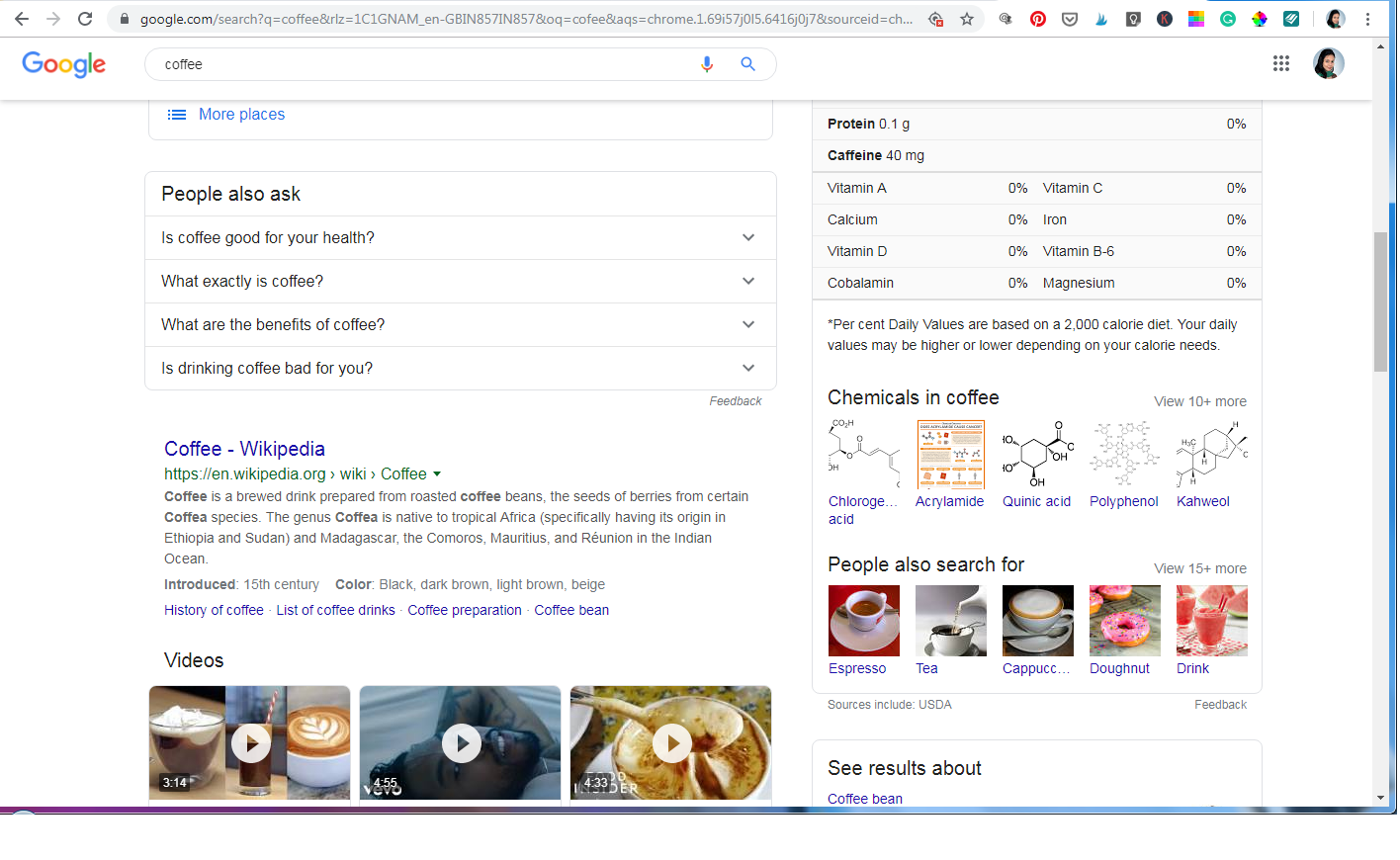
ONLY THE FIRST PAGE! Right?
And why some sites rank on the first page while others not?
Because of SEO or search engine optimisation of their content.
SEO starts with Keyword research. You can’t do SEO without searching for the right keywords.
Put another way:
If SEO is a ladder, SEO Keyword Research is the first stair. Until you take the first stair, you can’t climb up the ladder. You can’t complete your SEO to rank on the first page of the search engines.

In addition, researching keywords gives you insight into your audience’s thoughts, fears, and desires. What they search for and the exact words and phrases they use.
In short, keyword research is the key to your market research/understanding your target audience.
Now, let’s get into the nitty-gritty of SEO keyword research.
Free Keyword Research: How to Find Keywords?
First, prepare a list of keywords using the below steps. Then, drill down to choose the specific for your content.
1. Use Google and YouTube Suggest
After choosing your content topic, type it into Google and see the terms Google suggests to you:
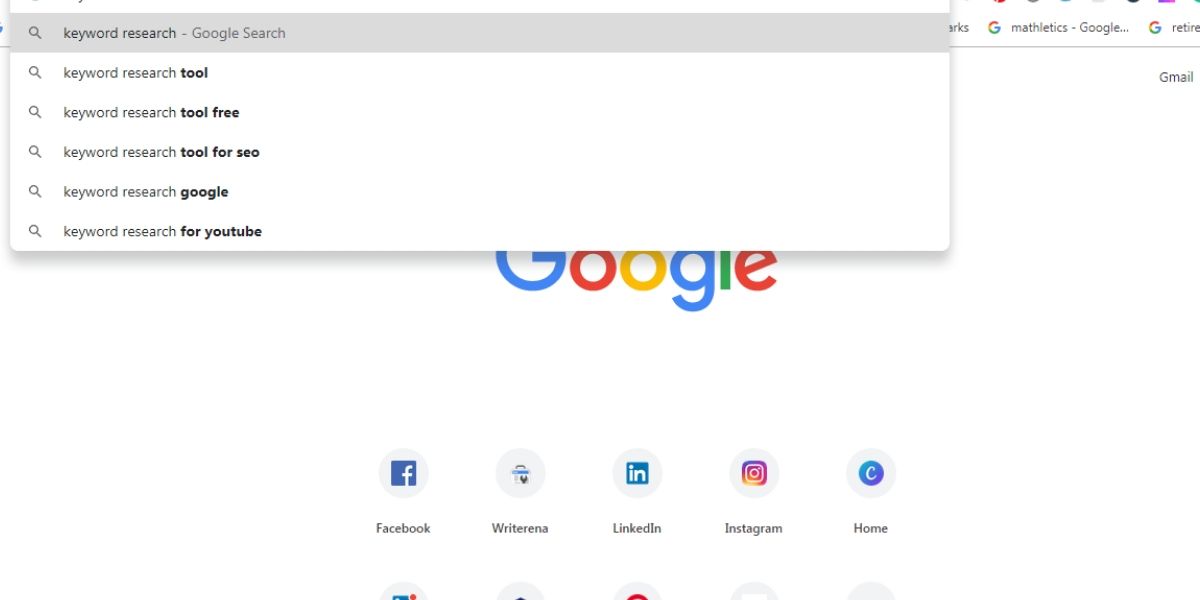
These are great keywords to list down as they are directly from Google. And if Google suggests it, you KNOW that lots of people search for it.
Next, find keyword suggestions with YouTube suggest:

2. Check the “Searches related to” section
Another cool way to widen your keywords list is to check out the “Searches Related to” section at the bottom of the Google page.
Continuing with the above example,

Scroll to the bottom of the page where you find more keywords related to your search term.
Just like Google Suggest, these keywords come straight from Google and make your guesswork nil.
Click on one term in “Searches related to”. Scroll to the bottom. This will give you a new set of related keywords. Rinse and repeat.
3. Get keywords from Reddit
Reddit is a network of communities based on people’s interests, like food, health, lifestyle, business, writing, etc. So you can find almost everything on Reddit.
Head over to Reddit. Type in the ‘topic’ of your content.

Then, choose a subreddit with a good amount of members like this:
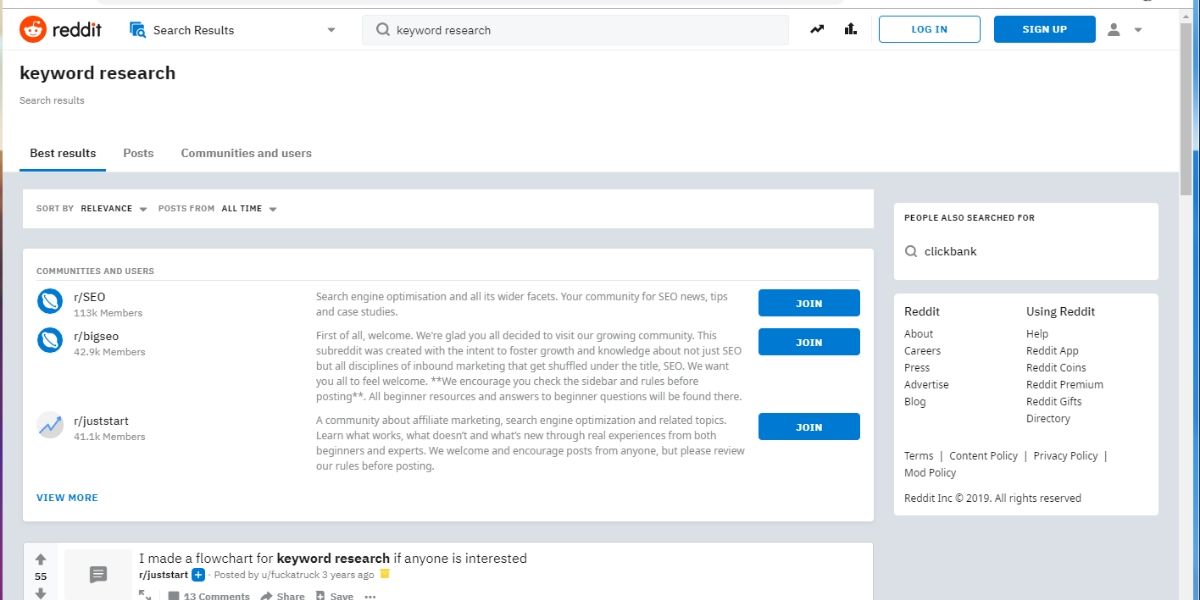
Pour the name of this subreddit into the free keyword research tool called “Keyworddit”.
This tool scans the words and phrases on Reddit and sorts them by the monthly search volume.
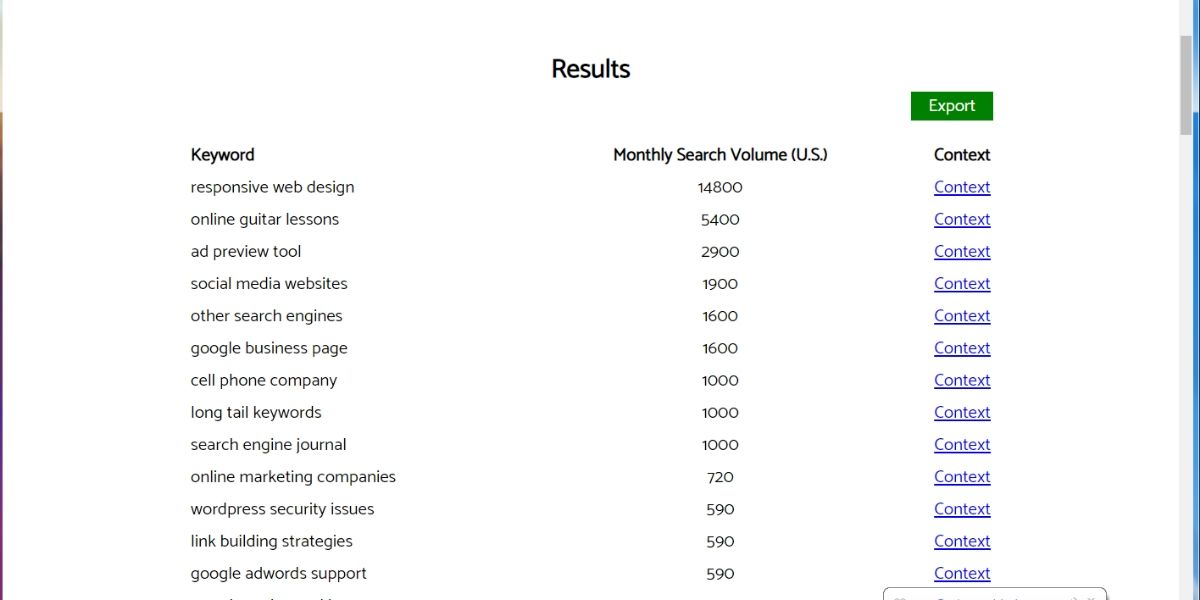
4. Wikipedia Table of Contents
Wikipedia is a goldmine for keyword research, though often overlooked.
Here you find articles curated by thousands of industry experts.
Head over to Wikipedia and type your search term:

That will take you to Wikipedia page for that topic.
Look at the “contents” section of the page which lists out the subtopics covered on that page. These subtopics make an exceptional list of keywords.

Also click on some internal links on the page and check out the Table of Contents of other closely related entries.
5. Utilise Pinterest Search
Pinterest is a visual search engine and gives you keywords you might not find elsewhere.
Head over to Pinterest and type in your search term.
The blocks from left to right form your list of potential keywords in decreasing order of popularity.
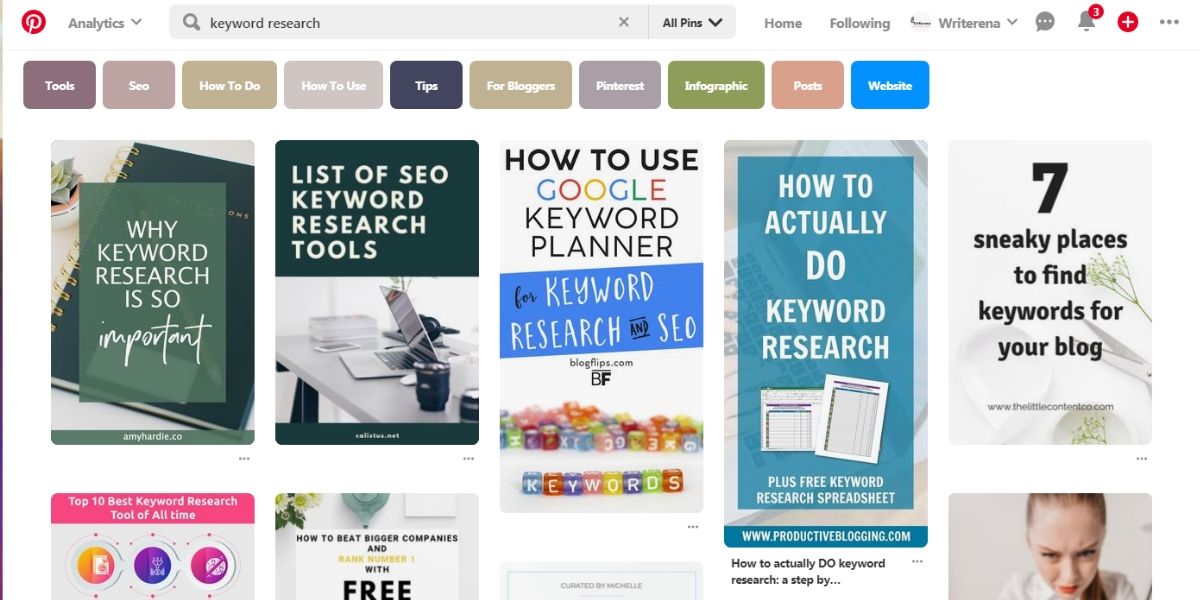
How to choose keywords?
Now, you have a huge list of keywords. However, you can’t use them all. You must know if a keyword is too competitive to rank for.
Because if you choose a super competitive keyword, you’ll find your site buried in some corner of Google’s pages, and not on the FIRST page, which is your goal.
On the other side, if you use a keyword without a ton of competition, you can easily crack the top 3.
Here’s how to judge a keyword’s SEO difficulty:
SEO experts divide keywords into three major categories: head, body and the (long) tail.
Let’s see what each type means:
Head Keywords
They are single-word keywords with lots of search volume and competition. For example: “writing”, “marketing”, etc.
Such terms rarely convert well because we can’t gauge their user intent. If someone searches for “marketing”, he might be looking for a marketing software, marketing course or a marketing agency. We don’t know exactly.
Body Keywords
Body keywords are 2-3 word phrases with decent search volume (at least 2,000 searches per month) and are more specific than Head Keywords. Keywords like “writing a blog” or “marketing automation software” are examples of Body Keywords.
Long-tail Keywords
Long-tail keywords are long having 4+ phrases, are very specific, and usually less competitive. Phrases like “writing a blog for beginners” and “best content marketing software” are examples of long-tail keywords.
However, there’s no “best” keyword category to focus on. Mix and use all 3 that fit your business.
Factors affecting your SEO Keyword Research

Besides Keyword difficulty, there are a handful of other factors to help you pick the best keyword.
So what are those factors?
1. Search Volume
That’s straightforward. More the number of people searching for a keyword, the more traffic you can get from it.
But the question is: What’s a “good” search volume?
Answer: It depends upon your industry
For example, a long-tail keyword in the fitness niche (like: “best face exercises for women”) gets 1K-10K searches per month:
But a long-tail keyword in a B2B space like LinkedIn automation (like: “best LinkedIn automation tool”) only gets 10–100 monthly searches.
So figure out the “high” and “low” search volume number in your niche and choose keywords based on that.
2. Organic Click-through rate
Today, the number of Google searchers who click on an organic search result is low.
That’s because of Featured Snippets and more ads by Google for a particular search term.
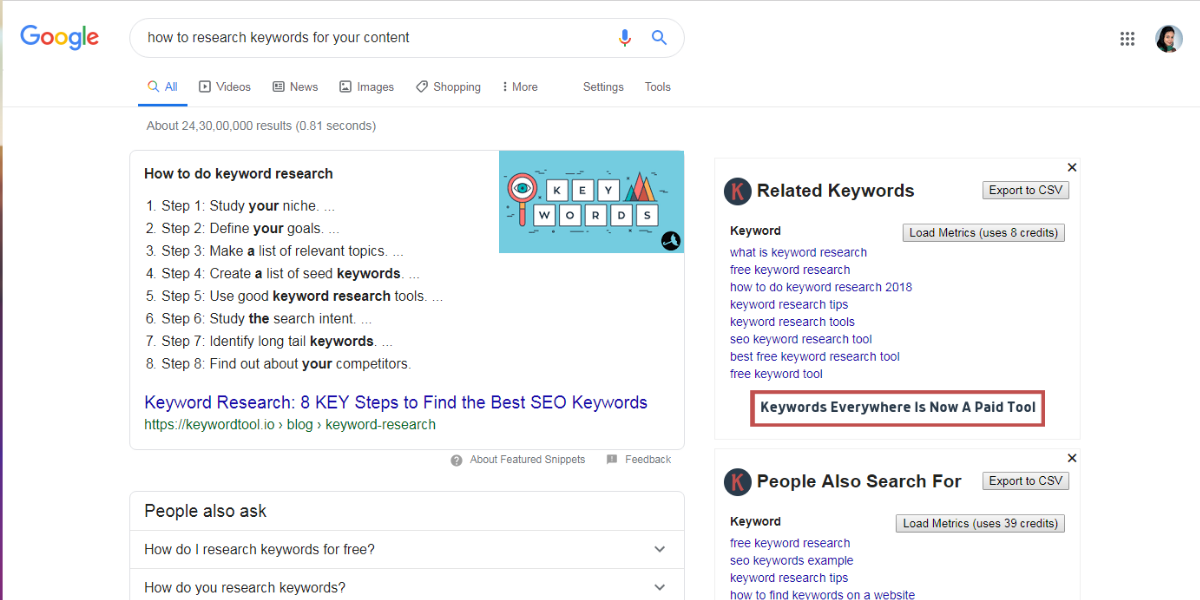
Bottom line?
Besides Search Volume, you need to estimate how many clicks you’ll get from a first page Google ranking i.e. estimate the organic CTR.
3. CPC (cost per click)
That’s a single metric that answers one important question:
How much people actually spend on that keyword?
So yeah, search volume and CTR are good! But if nobody spends money on a search term, there’s no point in targeting that term.
Plus, sometimes you can get a great ROI from a keyword that doesn’t have a good search volume, but its CPC is high enough.
4. Business Fit
You know the search volume, CTR and CPC of your search term. But will it yield to you a customer?
Brian Dean of Backlinko gives a perfect example of this!
A few weeks ago, he came across the keyword: “backlink checker”.
On the surface, it was a great keyword with a decent amount of searches, a $4.01 CPC, and not that competitive.
However, the keyword wasn’t a winner… not really.
Because Backlinko is an SEO training company. It doesn’t sell a backlink analysis tool. So, it won’t do him much good.
Contrast that with a keyword like “YouTube SEO”. This keyword’s CPC is only $2.22.
Considering that he sells a YouTube training course, this term is a 100% fit for his business.
5. Keyword Trends
Finally, see if your keyword is growing fast… or dying slow.
The best way to do that? Google Trends.
Pop your keyword into Google Trends and see its trend. Only select the keyword that’s growing fast or has a regular trend.
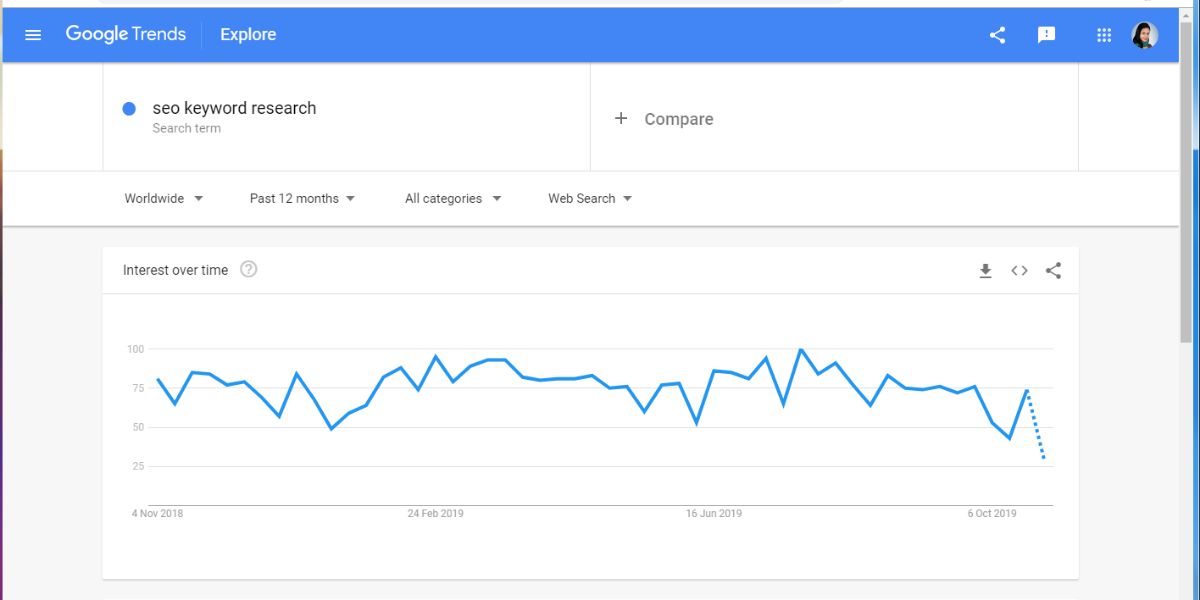
Free SEO Keyword Research tools
You must consider all the above factors to pick one that fits your business.
For the purpose, I use and recommend this free keyword tool:
Ubersuggest by Neil Patel
Ubersuggest generates keyword ideas from Google’s search suggestions and also gives data on each keyword (like search volume, CPC, keyword difficulty and more).

Here’s a short video tutorial on how to use Ubersuggest effectively (+Bonus tips)
Final Words on SEO Keyword Research
Use the above tool and choose your “Primary” keyword for the content you wish to write. ALWAYS consider the search volume, CTR, CPC, Keyword difficulty, Google trends, and your business fit before completing your choice.
Also, use the keywords from “Searches Related to” section throughout your content to make it SEO-friendly.
Now, it’s your turn!
Which SEO keyword research method will you try first?
Google Suggest or Wikipedia or Reddit? Either way, let me know in the comments.
Know someone who’s about to write his first content and want a sure-shot method to SEO keyword research?
Share this SEO keyword research guide with him and he’ll thank you forever.

FAQs about SEO on Quora
- Empower your Juggle: 10 Essential Work-Life Balance Tips for Moms - September 13, 2023
- Mastering Stress Management at Work fora Productive Career - September 13, 2023
- Banish Cramps: 6 Foods to Avoid during Periods - September 8, 2023

